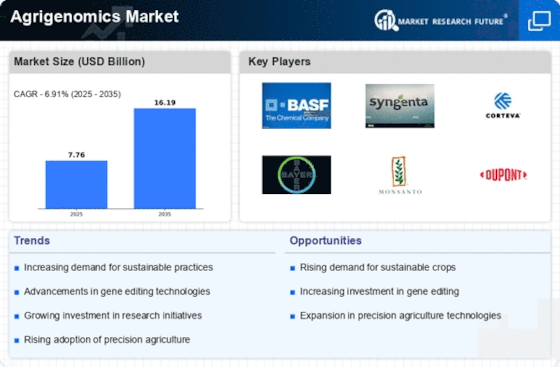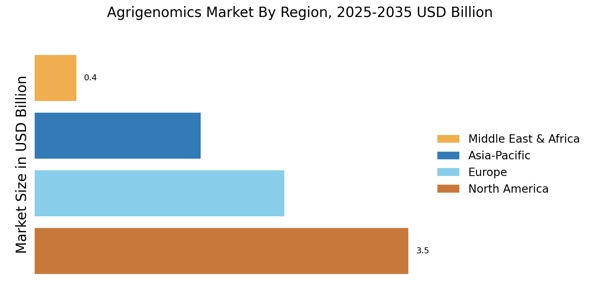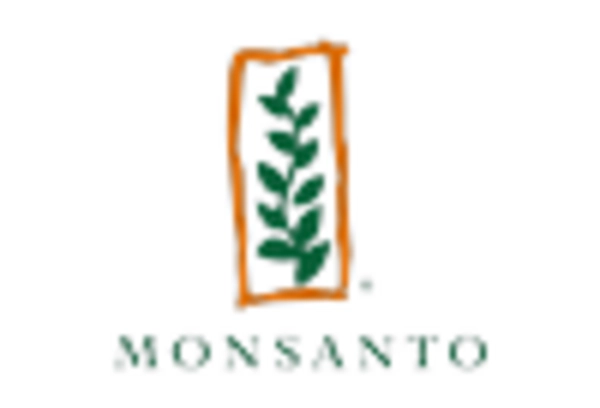Rising Demand for Food Security
The increasing global population has led to a heightened demand for food security, which is a primary driver in the Agrigenomics Market. As populations grow, the need for efficient agricultural practices becomes paramount. Agrigenomics Market offers solutions through genetic modifications and enhancements that can lead to higher crop yields and improved resistance to pests and diseases. According to recent data, the world population is projected to reach approximately 9.7 billion by 2050, necessitating a significant increase in food production. This scenario creates a fertile ground for the Agrigenomics Market, as stakeholders seek innovative approaches to meet these demands while ensuring sustainability and environmental protection.
Advancements in Genomic Technologies
Technological advancements in genomic research are propelling the Agrigenomics Market forward. Innovations such as CRISPR and next-generation sequencing are revolutionizing the way genetic information is analyzed and utilized in agriculture. These technologies enable precise modifications to plant genomes, enhancing traits such as drought resistance and nutritional content. The market for genomic technologies in agriculture is expected to grow significantly, with estimates suggesting a compound annual growth rate of over 10% in the coming years. This growth indicates a robust interest in leveraging genomic tools to improve crop performance and resilience, thereby driving the Agrigenomics Market.
Consumer Awareness and Acceptance of Biotechnology
Consumer awareness and acceptance of biotechnology play a pivotal role in the Agrigenomics Market. As consumers become more informed about the benefits of genetically modified crops, including improved nutritional profiles and reduced pesticide use, acceptance levels are rising. Surveys indicate that a significant portion of the population is open to consuming genetically modified foods, provided they are informed about their safety and benefits. This shift in consumer perception is likely to drive demand for biotech products, encouraging producers to invest in agrigenomics. Consequently, the Agrigenomics Market may experience accelerated growth as consumer preferences align with biotechnological advancements.
Increased Investment in Agricultural Biotechnology
Investment in agricultural biotechnology is a crucial driver for the Agrigenomics Market. Governments and private sectors are increasingly recognizing the potential of biotechnology to address agricultural challenges. Reports indicate that funding for agricultural biotech research has surged, with investments reaching billions of dollars annually. This influx of capital supports the development of innovative solutions that enhance crop productivity and sustainability. As stakeholders seek to optimize agricultural outputs, the Agrigenomics Market stands to benefit from this trend, as more resources are allocated to research and development in genomic applications.
Regulatory Support for Genetically Modified Organisms
Regulatory frameworks that support the use of genetically modified organisms (GMOs) are instrumental in shaping the Agrigenomics Market. Many countries are establishing guidelines that facilitate the approval and commercialization of genetically engineered crops. This regulatory support is crucial for fostering innovation and encouraging investment in agrigenomics. As more crops receive regulatory approval, the market is likely to expand, providing farmers with access to advanced agricultural technologies. The positive regulatory environment may lead to increased adoption of GMOs, thereby enhancing the overall growth trajectory of the Agrigenomics Market.

















